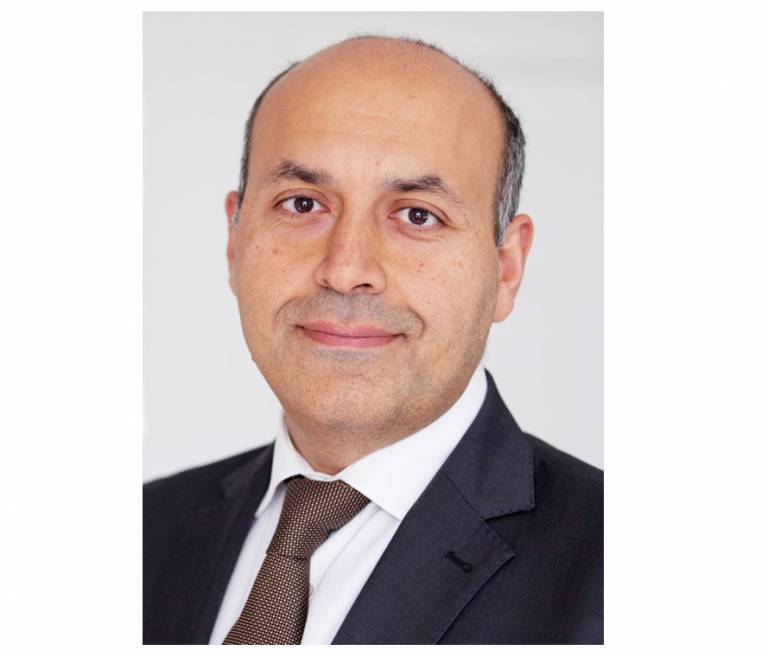Meet the Expert: Ash Mosahebi
26 January 2021
Professor Ash Mosahebi is Honorary Professor at the Department of Surgical Biotechnology in the UCL Division of Surgery & Interventional Science. We caught up with him to find out more about the new Masters of Surgery (MS) in Aesthetics and Minimally-Invasive Aesthetics.

Afshin (known as Ash) is Honorary Professor at the Department of Surgical Biotechnology in the Division of Surgery & Interventional Science, Faculty of Medical Sciences. Ash is involved in pioneering research work on regenerating new tissues through new biomaterials and tissue engineering as well as clinical trials in innovative techniques in wound healing.
An author of a number of publications and a worldwide lecturer, he is also on the editorial board of the Aesthetic Surgery Journal (ASJ) and honorary secretary of the British Association of Plastic Aesthetic Surgeons (BAAPS) and former president of the Royal Society of Medicine (plastic surgery section).
Ash had been on the advisory panel for Health Education England (HEE) consulting on regulation for non-invasive aesthetic treatments. And it is in part this specialist interest in aesthetic surgery that has seen UCL becoming the first global academic institution to offer a comprehensive Masters of Surgery (MS) in Aesthetics and Minimally-Invasive Aesthetics.
This makes UCL the first ever Russell Group university to offer such a course, and it is a global first too - since other available courses are not Masters of Surgery, but MSc Masters of Science.
We caught up with Ash recently, and this is what he told us.
Q: What attracted you to the area of aesthetic surgery and medicine?
The ability to blend art and medicine to improve the quality of a person’s physical looks - and help them achieve their personal goals in a safe and ethical manner.
Q: Can you tell us some more details about the new MS in Aesthetic Surgery launching at UCL in September 2021 and who the courses are suitable for?
Ash: The new programme, which includes two courses, Masters of MS in Aesthetic Surgery and Minimally-Invasive Aesthetics, will be led by me and Dr Eqram Rahman with remote on-line teaching from UCL’s world-leading faculty in aesthetic surgery and non-surgical aesthetics at the Royal Free Hospital. The courses will be based on a format of a mix of lectures, tutorials, expert forums and workshops with a blend of learning approaches which will involve online learning and self-study - along with intensive simulated operative skills training.
The MS Aesthetics (Aesthetic Surgery) will include the principles and practice of aesthetics and research context, epigenetics and regenerative aesthetics, fundamentals of minimally-invasive facial aesthetics, advanced aesthetic surgery of the breast and torso and advanced aesthetic surgery of the head and neck. Applicants will be medical graduates with a primary medical qualification and a minimum of two years’ training in general, plastic or dermatological surgery.
The MS Aesthetics (Minimally-Invasive Aesthetics) will include principles and practice of aesthetics and research context, epigenetics and regenerative aesthetics, fundamentals of minimally-invasive facial aesthetics, minimally-invasive aesthetic practice and advanced minimally-invasive aesthetic practice. Applicants should have the qualifications as above - or undergraduate qualification (BDS) in dentistry or be an advanced nurse practitioner registered with NMC, or a prescribing pharmacist registered with GPh.
Q: Can you explain the need for regulation and training in the UK?
Ash: Currently there is an absence of any standards or accredited training for non-surgical cosmetic procedures in the UK. In 2015, Sir Bruce Keogh recommended the Government’s mandate for Health Education England (HEE) should include the development of appropriate accredited qualifications for providers of nonsurgical interventions - and that it should determine accreditation requirements for the various professional groups.
The current regulatory framework places no restrictions on who may perform nonsurgical cosmetic procedures. No qualifications are required to carry out these procedures and, in the absence of accredited training courses, anyone can set up a training course purporting to offer a qualification. As a result, a number of self-accredited training organisations have sprung up.
Aesthetic surgery and regenerative medicine have emerged as key growth areas within healthcare delivery across the world. An increasing number of healthcare professionals now offer treatments designed to refresh facial and overall appearance by surgery or minimally-invasive procedures (immobilising facial muscles or providing dermal fillers).
As this sector of medicine is outside of the NHS in the UK, its governance and standards of care have been the focus of much debate over recent years.
In an attempt to combat this, there is a growing push to legitimize fully this sector of medicine with BAAPS advising patients to ensure that their surgeon or practitioner is fully licensed. BAAPS is supportive of the UCL Masters endeavour which helps to improve the standards of training in the aesthetic field.
BAAPS research strategy will help to form the research element of the Masters and direct the future improvement and safety of aesthetic practice.
Q: What do you enjoy most about teaching and lecturing your students?
Ash: The future belongs to our students. I hope to get them curious about the topic and facilitate them to push the frontiers of the aesthetic and regenerative medicine and surgery. I always learn by teaching and interaction with students which is an added bonus.
Q: What makes you jump out of bed at the beginning of each day?
Ash: My dog barking and my kids wanting breakfast! Joking apart, there is so much to look forward to every day from treating patients with unexpected findings - to trainees coming up with unusual scenarios.
 Close
Close

